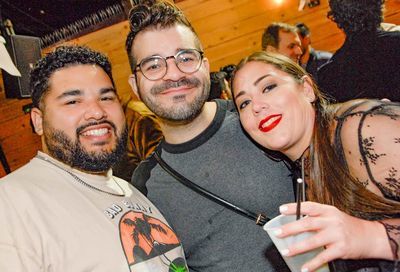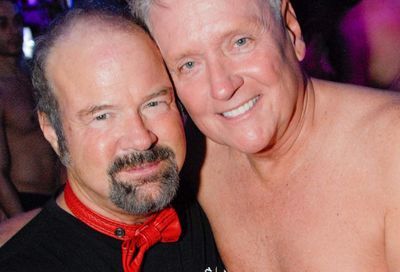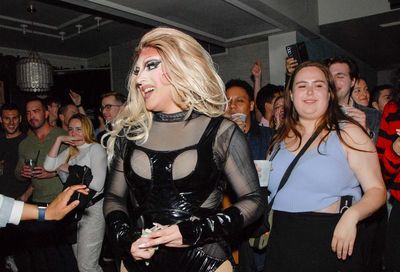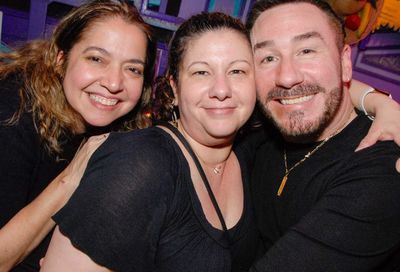The Righteous Riots
Taking pride in marking the 40th anniversary of the Stonewall Riots
There was a time when the phrase “Stonewall” was more likely to conjure images of the Civil War than of Greenwich Village. Then again, perhaps the two aren’t so far apart, though we can be thankful that our “culture war” has a far lower body count than the Civil War.
But there it stands, the Stonewall Inn at 53 Christopher St., enshrined in the National Register of Historic Places, right along so many Civil War battlefields.
As the National Park Service, caretaker of America’s National Historic Landmarks, puts it: “Stonewall is nationally significant because it is associated with events that outstandingly represent the struggle for civil rights in America. The nominated site encompasses a several block area in Greenwich Village that was the location of a series of events, collectively known as Stonewall, that occurred between June 28 and July 3, 1969. Stonewall is regarded as the single most important event that led to the modern movement for gay and lesbian civil rights.”
During those few days 40 years ago, patrons of this tiny gay bar decided that they had had their fill of institutionalized harassment and revolted. It was one police raid too many, leading to days of riots that put the city establishment on notice that the GLBT community — with drag queens and other gender-nonconforming revolutionaries leading the first rally cry — was no longer willing to acquiesce to bullying by the majority. As the New York Daily News headline offered at the time, “Homo Nest Raided, Queen Bees Are Stinging Mad.”
Homophobic, but accurate.
From that article, published July 6, 1969, reporter Jerry Lisker wrote, in part, “The crowd began to get out of hand, eye witnesses said. Then, without warning, Queen Power exploded with all the fury of a gay atomic bomb. Queens, princesses and ladies-in-waiting began hurling anything they could get their polished, manicured fingernails on. Bobby pins, compacts, curlers, lipstick tubes and other femme fatale missiles were flying in the direction of the cops. The war was on. The lilies of the valley had become carnivorous jungle plants.”
As the community comes together in Washington for Capital Pride, this 40th anniversary lends itself to the local theme, “Generations of Pride: Celebrate and Remember.” And while the Stonewall Inn is more than 200 miles from D.C., the aura of Stonewall now belongs to the world’s entire GLBT community. Just ask the crowd in New Delhi, India, for example, who used the Stonewall Riots as the theme of their Pride festivities in June 2008.
Larry Stansbury, involved with Capital Pride for decades, today serving as treasurer, was not as far away as India when the Stonewall Riots hit. He was a college student living in Richmond, Va.
“There were some blurbs in the Richmond Times-Dispatch,” Stansbury says, recalling that the Richmond gay community, with a strong drag component, was aware of what was happening in Greenwich Village. “In the gay community — it was a tightly knit community — everybody knew someone from New York, had friends there.”
While the news traveled quickly, says Stansbury, the effect ”started hitting home” later for a community that was overly familiar with police harassment.
“If the police came in, they were going to check your ID, rough-up some people. The drag queens always seemed to get roughed-up first. We’ve come a long way.”
Only 34, Jessica McKinnon, serving as the chair of Capital Pride’s Trans Pride Committee, wasn’t yet alive when the Stonewall Riots heralded a turn in the push toward GLBT equality. Having moved to the United States from her native South Africa just nine years ago adds another layer of distance between her and Stonewall.
”I think it’s particularly significant on the transgender side,” says McKinnon, who identifies as transgender. She sees the LGBT movement as having come ”almost full circle” since the days of Stonewall with all parts of the community together under one banner.
“Especially significant for me, as chair of Capital Trans Pride, now an official event on the Capital Pride calendar, is that it really symbolizes that return to the LGBT community as a whole, as I think it originally was in the days of the Stonewall Riots.”
Support Metro Weekly’s Journalism
These are challenging times for news organizations. And yet it’s crucial we stay active and provide vital resources and information to both our local readers and the world. So won’t you please take a moment and consider supporting Metro Weekly with a membership? For as little as $5 a month, you can help ensure Metro Weekly magazine and MetroWeekly.com remain free, viable resources as we provide the best, most diverse, culturally-resonant LGBTQ coverage in both the D.C. region and around the world. Memberships come with exclusive perks and discounts, your own personal digital delivery of each week’s magazine (and an archive), access to our Member's Lounge when it launches this fall, and exclusive members-only items like Metro Weekly Membership Mugs and Tote Bags! Check out all our membership levels here and please join us today!





















